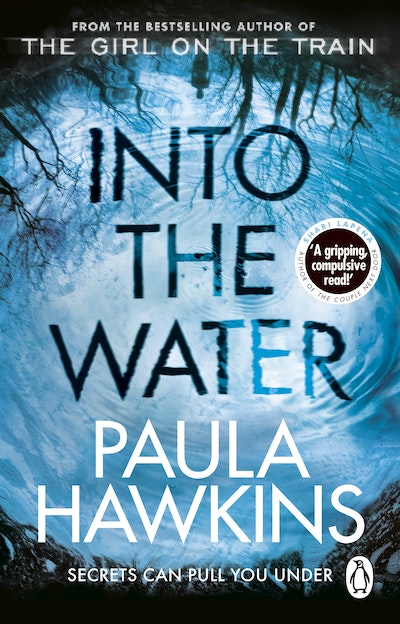The Into the Water author on writing, remembering and day-to-day darkness.
How would you introduce Into the Water to your readers, and what do you hope readers will find within it?
Into the Water is a psychological suspense novel centred on the fractured relationship between two sisters, Nel and Jules. When Nel dies unexpectedly, Jules finds herself trying to figure out not just what has happened to her elder sister, but what has happened between the two of them to leave them so estranged. This is a book of many mysteries. It is about searching for answers, for meaning.
Fans of The Girl on the Train will be curious to see the similarities or differences between that book and this one. Do you see a through-line?
They are both novels of psychological suspense, both are focused primarily on women, their relationships to each other and to society around them. The unreliability of memory plays a part in both books, although it occurs in a very different, more fundamental way in Into the Water.
Once again, the story is narrated from multiple points of view, although this time I have many more characters’ perspectives, and six different first-person narratives. Necessarily, these narratives are unreliable: all first-person narration is unreliable. Everybody lies, exaggerates, obfuscates to a greater or lesser degree.
Memory is clearly a subject that interests you. Tell us a little more about this fascination.
We trust our memories implicitly – how could we not? They allow us to make sense of the worlds we live in, they inform who we are and how we relate to people. And yet, they aren’t trustworthy. All of us mis-remember things, often things from childhood, sometimes events from later in life. All of us are capable of altering our own stories through the telling of them. In many cases, mis-remembered stories are minor, trivial. But I wanted to ask: what if someone mis-remembered something crucial, something fundamental to their identity, to the wholeness of their life? What might happen to them when they discovered that what they thought was solid was built on shifting sands?
Into the Water, like The Girl on the Train, is narrated from multiple perspectives. What do you like about this storytelling approach?
I enjoy the insight that shifts in perspective can give; the way that viewing one event through the eyes of different characters changes our understanding of that event, giving us a fuller picture of what happened, or raising doubts in our minds, not just about the event itself but about the motivations of the characters telling us the story.
I like the immediacy of first-person narration, but it can be limiting; multiple first-person perspectives allow the reader to immerse herself in the characters’ psychologies, to more fully understand their motivations and their weaknesses.
You write about childhood in this book, something that is new in your work, with a focus on the vastly divergent ways that members of the same family can remember the same events. What inspired this decision?
The stories we tell about ourselves and our families are definitive; they inform the people we become. So it fascinates me the way members of the same family can tell such different stories about living in the same home, with the same people. In this book I wanted to explore the way children regard adult relationships, adult actions and decisions, and the way they limit their interpretations of these things along lines of what will make sense to them – sometimes with great perspicacity, sometimes with comical, or disastrous, misunderstanding.
Into the Water is set in a tiny rural town – very different from the suburban London setting for The Girl on the Train. What inspired this imaginary town of Beckford?
I should say first of all that the Beckford of the book does not exist. It is an entirely fictional town, placed in a mostly non-fictional landscape. I wanted to write about a small community, because I was interested in what living in a small town does to people: it can foster a great sense of solidarity, of neighbourhood, but it can also be quite suffocating to live somewhere where everyone knows everyone else. I wondered whether this might encourage a culture of secrecy, whether it might drive some members – particularly the young – to seek ways in which to rebel, to break out of their designated roles.
The reader can suspect all the characters in Into the Water, because they all seem to have a dark side, and this ensures a brilliantly twisty read. Do you think we do all have a dark side?
I think that people are capable of extraordinary things – good and bad – given the right (or wrong) circumstances. Subject to exceptional pressures, we might all behave in ways we could not conceive of in our ordinary, day-to-day existence.













